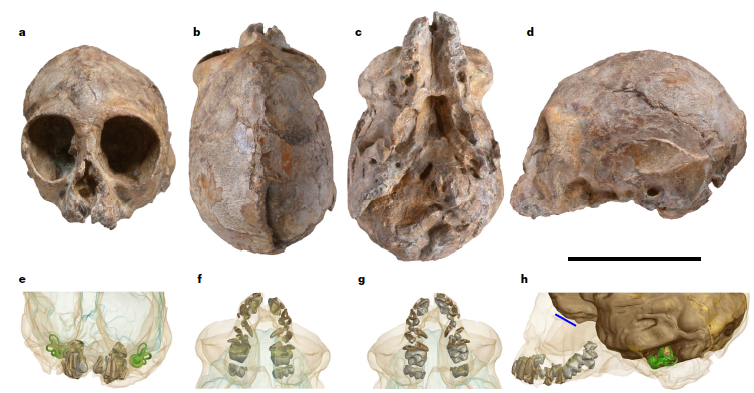- About
- Research
- Antarctic Search for Meteorites
- Case Comprehensive Cancer Center
- Center for Education and Research in Cosmology and Astrophysics
- Evolutionary Biology Program
- Evolutionary Medicine
- Published Research
- Resources
- Student Research Opportunities
- Cosmology and Astrophysics
- Emergence of the Mind
- Evolutionary Biology
- Evolutionary Medicine
- Origins of Solar Systems
- Paleoanthropology
- The in silico Cell
- MultiSci
- For Students
- Travel
- Origins Science Scholars & Videos
- Give to the ISO
News
The Big Bang… Life on other planets… The origin of life on Earth… Dark matter… The evolution of the human mind…
How we ask big questions matters. So does how we answer them. And that is changing. We need people who can think across the artificial boundaries of traditional departments and...
STUDENTS: sign up to attend a free Origins dinner lecture, click here!
Our Triceratops sticker will welcome new students to campus, grace laptops of Origins enthusiasts of all ages, and make appearances throughout the semester! Students: Please click on the "For Students" tab at the top of this page to learn...
PYRENEAN ORIGINS:
PREHISTORY, NATURE & DOMESTICATION
Reserve your spot today!
Join us in the Pyrenees!
September 6-16, 2019!
For more info on our 2019 Pyrenean Origins Tour, please call or text Patricia at 440-478-5292 or email her at Patricia@case.edu
Access to wonders only the ISO can bring you!
Our annual Pyrenees Trip is an utterly unique, custom-designed tour...
The living laboratory of Turkana, Kenya!
OPEN TO EVERY MAJOR!
Fall Semester, 2021
No pre-reqs
Earn 15 credits grad or undergrad
About the same cost as a semester in Cleveland!*
Join Patricia Princehouse, Isaiah Nengo and other top scientists, and a terrific group of students from CWRU, and American and Kenyan universities for this unique opportunity...
Join us for the Origins tour of CERN and the cave art, culture and landscapes of the Pyrenees, with a view of the entire chain of the Pyrenees from the observatory high atop Pic du Midi! This June 4-16, 2019, enjoy historic and cultural sites, the nature and landscape, the food and...
Exploradio Origins ponders the biggest questions in the universe in 90 seconds!
The Institute for the Science of Origins is delighted to announce the launch of our new partnership with WKSU radio. The series offers 90-second glimpses of the exciting world of origins science. Each episode highlights the work of one of...
On 4/20/2018, NPR’s celebrated science program, Science Friday, featured Dr. Cynthia Beall, ISO Fellow and professor of Anthropology, speaking about human genetic adaptation to high-altitude environments. The segment, “Diving Deep to Appreciate the Spleen,” explores human genetic adaptation to low-oxygen environments, beginning with the “Sea Nomads,” the Bajau people of southeast Asia who subsist completely off of the ocean, diving upto 65 feet, multiple times, for eight hours a day. Their large spleens store oxygenated blood for extended release during these prolonged dives. Dr. Beall’s work identifies another (different) human genetic trait that eases breathing in low-oxygen environments carried by Tibetans.
In honour of the 50th anniversary of Steven Weinberg’s publication, A Model of Leptons, the work that solidified the Standard Model of Physics as we know it today, the CWRU College of Arts and Sciences and Department of Physics are hosting a Symposium, gathering together the seminal contributors of “the most successful theory known to mankind.” The star-studded lineup of speakers features some of the most famous names in physics: 8 Nobelists, and about twenty other noted scientists. See the SM@50 website for the program of public and technical talks, registration instructions, and much more! This shall be truly a once-in-a-lifetime opportunity to meet and hear the legendary builders of the Standard Model (in Cleveland!) in their own words. Livestream will be available.
Biomimicry, the practice of looking to Nature for design and engineering inspiration, famously delivered things like velcro and wind turbines. The grant authors estimate that these and other biomimetic concepts will account for $1.2 trillion in global economic development, yet the process of lifting ideas from Nature for application in human endeavours is far from straightforward- it requires the development and education of a diverse, globally-engaged, U.S. science and engineering workforce who can speak across national and academic borders to drive basic innovation and invention – something our ISO Fellow and Case colleagues now will have a hand in shaping.
There’s been big news from ISO Fellow Isaiah Nengo: In their August Nature publication, he and his team describe a new infant cranium from the African Miocene, shedding light on important aspects ape evolution. The evolutionary history of extant hominoids (humans and apes) remains poorly understood, and the African fossil record tells us little to nothing about cranial evolution in this time- until now. Read as Nengo reports the most complete fossil ape cranium yet described, recovered from the 13million-year-old Middle Miocene site of Napudet, Kenya!










